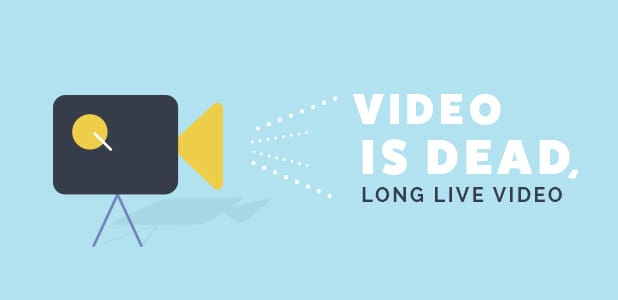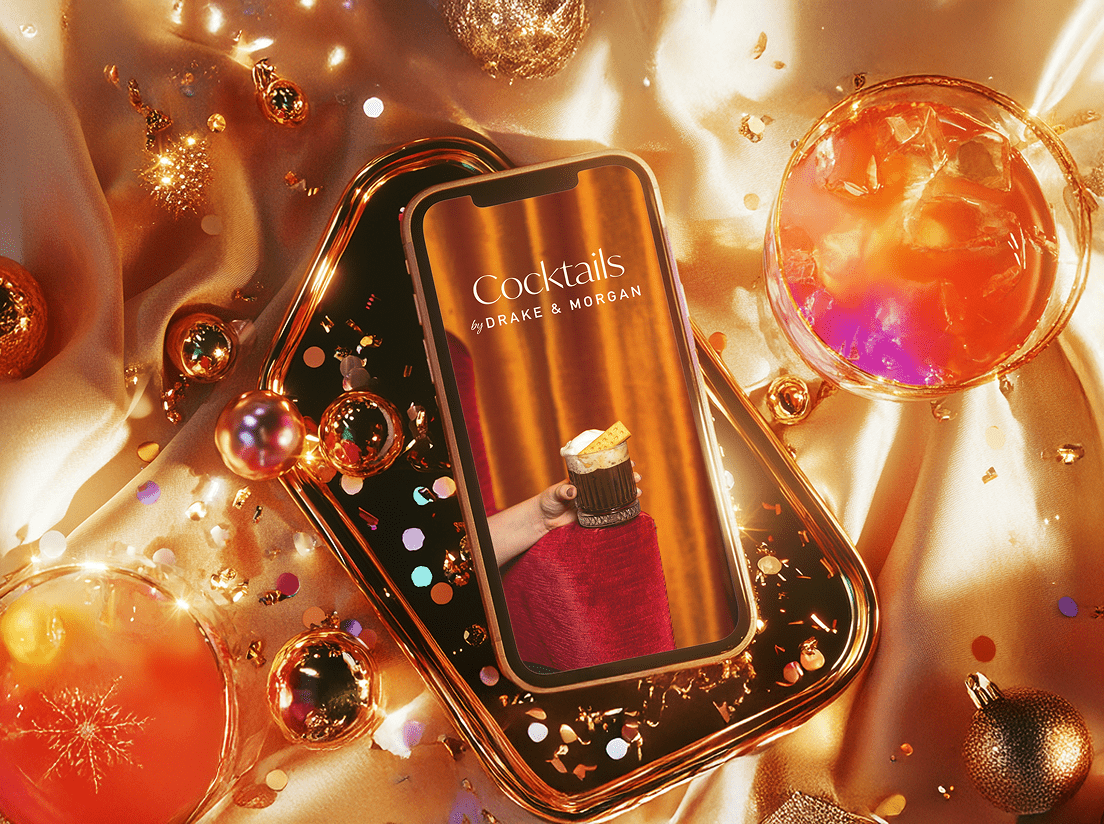
The king is dead, long live the king.It’s a phrase the French coined to herald the transition of sovereignty from one monarch to the next. The expression was purposefully constructed to indicate that at no point is there ever a time without a king.In the digital age, video may be the new monarch.
VIDEO IS DEAD
Video storytelling has long proven an incredibly effective way to convey the brand experience. Forrester researcher Dr. James McQuivey recently even went to far as to estimate that a one-minute video is equivalent to 1.8 million words.But the way we once created, consumed, and incorporated video in our marketing strategy is dead.And that’s not a bad thing.Technology has gone a long way to help level the playing field for hotel brands. Gone are the days of laying out tens of thousands of dollars for basic production. Today, teams with even modest marketing budgets are making captivating content.Where we view video has been completely disrupted. Barely a decade ago television was the primary destination for video storytelling. Today, one in three consumers say they’ve never had cable or no longer do. For many hotel brands sharing video today, TV airtime isn’t even a consideration.
LONG LIVE VIDEO
In today’s multi-screen, multi-platform world, pure video storytelling itself has never been hotter. Just about every current statistic shows that cameras are rolling and we’re rabidly consuming.
- One-third of all online activity is spent watching video (Google).
- Growth in watch time on YouTube is up more than 50 percent year-over-year (YouTube).
- Mobile video consumption rises 100% every year (YouTube).
That includes statistics regarding the use of video in marketing.
- 87% of online marketers use video content (Outbrain).
- Digital video advertising spending grew 46% to $7.7bn in the US last year alone (eMarketer).
The style and speed of how we craft and publish video is changing, too.Facebook implemented its default auto-play feature for newsfeed videos less than a year ago, and the social innovator is currently focused on developing ‘live’ video content, in direct competition with rival Twitter and its Periscope platform.Nicola Mendelsohn, Facebook’s VP for EMEA, has even gone so far as to predict that the world’s largest social network would “probably” be “all video” in the next five years.Even the video experience itself is evolving, as 360 video becomes more prevalent and major hotel brands experiment with the technology.
SPOTLIGHT ON HOSPITALITY
When it comes to how video influences travelers, a May 2016 Google report notes that a full two-thirds of travelers look to the internet for inspiration as to where to go, more than they look to recommendations from family and friends, magazines, TV, books, even travel professionals.Travel-related videos are viewed throughout the research process, with YouTube being the top destination for hotel bookers to watch online video, and Facebook as the second hottest destination for video views.Along the path to purchase, the report makes the case that most travelers are open to persuasion, with many uncertain about where to go or what brand to patronize as they research.As it relates to lodging specifically, only 19% of travelers say they are absolutely set on which brand they will book with, leaving the vast majority of travelers waiting to be wooed.With 54% of leisure and business travelers watching travel-related videos as they decide on accommodations, video as storyteller presents a wealth of opportunity.With travelers so heavily engaged with online video, and a leveling playing field among hospitality brands of all sizes, the time is prime for hotels to actively produce, share and promote video storytelling.
LIGHTS, CAMERA, ACTION
For hotel marketing teams who have yet to implement a video storytelling strategy, there’s never been a more prudent time to get scripting.Here are seven things to keep in mind.
- Don’t feel overwhelmed. You’re not playing catchup. Short, straightforward video storytelling should be the early objective. There’s no need to shoot an epic or dive into the 360 realm on day one.
- Set goals and keep it simple. Pinpoint what aspects of your brand’s story are most suited for video storytelling. Plan to build an authentic, sharable video foundation.
- Budget now. You don’t have to roll film immediately, but earmark funds for the program in your next budget cycle to assure the money is available once you’re ready.
- Budget enough. While the cost of a video crew and post-production isn’t what it once was, it’s still an investment. Be sure to budget enough to secure quality local video professionals, tools and software, and don’t forget funds for media placement (boosted posts, online advertisement, etc.) further down the road.
- Look to your agency. Your digital marketing partners know both your brand and your audience. Task them to assist in scripting your story, guiding your placement, and maximizing the exposure of the videos produced.
- Start creating content. Put your toe in the water with a simple shoot, and look for online tools to help with production and promotion. YouTube just rolled out YouTube Director, a free app with a suite of tools that enable small and medium-sized businesses to create and manage high-quality video and subsequent ads themselves. For more aggressive goals, research local production talent, and find a team that you can establish a long-term relationship with.
- Grow your audience, and the value of your video. Treat video like any other marketing tool. Test, evaluate, learn and tweak. Video storytelling is a journey, not a destination.
Bottom line, it’s clear that at no point going forward will there be a time without video. So for hotel teams that have yet to incorporate video storytelling into their marketing strategy, it’s time for lights … camera … action.






